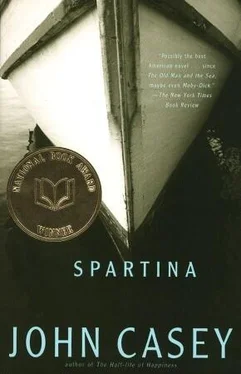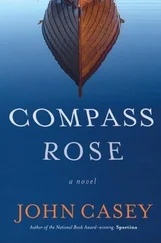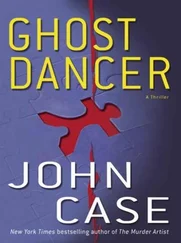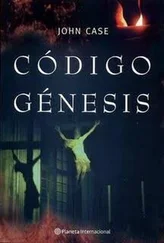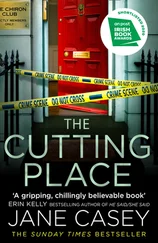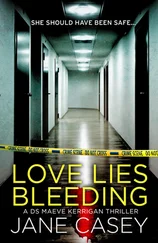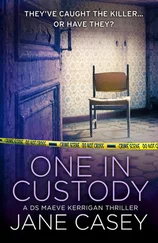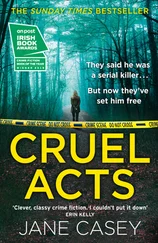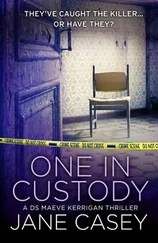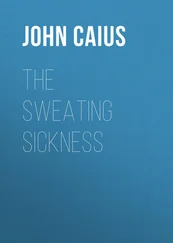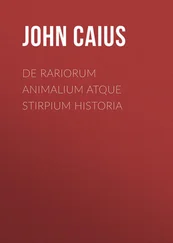“The cop was named Russo? Jesus.”
“No, you don’t get it. I love it. It was great.” Parker did a bongo beat on the steering wheel with his fingers. “You know, one of those things you can’t rehearse. If that dog had gone in nose first, instead of trying to roll in that shit. Where’s a gas station around here? I got to make a phone call.”
It began to rain again. Dick kept the window open while Parker phoned. The basket was stinking up the whole car.

B y the time they got to Route 1 the rain stopped. It was like that with a smoky southwester, on and off. Parker swung the VW into the Sawtooth Point gate. “It’ll just take a minute. I got a real bright idea.” Dick was too dazed to get worried over what Parker was up to.
There were a half-dozen new cottages visible from the drive. They looked nearly done, at least the roofs were shingled. A lot of planting going on too. They’d left all the old locust trees around the Buttrick house, but they’d torn up the drainage system. Between the Buttrick house and the Wedding Cake there was a pair of new bright-green tennis courts alongside the old clay one. Dick remembered when the Buttricks put it in. The chicken wire was torn off, and the old posts and the backboard were fresh-painted. The bushes around the outside were full of raspberries.
Parker drove right up to the Wedding Cake. The door was open. There were several crates and pieces of furniture on the porch, and a U-Haul truck was backed up to it with its tailgate down. No people.
Parker walked in and shouted, “Hey, Schuyler!” Schuyler appeared in the open doorway on the pond side. He’d just been for a swim. He had a towel round his neck and there were wet curls on his forehead. Otherwise he was naked.
“Hello there, Captain Parker. Want to go for a dip? Hello there, Dick, come in.”
The hallway was empty. Through the open double doors Dick saw the main room was empty except for a record player and bottles and glasses.
Parker said, “What happened here?”
“We’re moving to one of the cottages. And I had the cast and crew in for a little party. Finished up last Friday. Not our noble documentary, just a little quickie. College-kid cast. Nubile bodies in the water, on the grass, in mid-air … I told you about it, didn’t I?” Schuyler dried his hair. “Bring the stuff into the kitchen. I’ll be right down. I think there’s something left for breakfast.” He was halfway up the stairs by the time he finished speaking.
Parker went out to get the basket. Dick looked around. He hadn’t been inside the Wedding Cake since he was a kid. He couldn’t remember why he’d been there. His father, his mother. Great-Uncle Arthur. It was because Uncle Arthur’s wife had died. Uncle Arthur was in black, there were flowers in vases. Miss Perry had been there. He’d gone onto the back porch with his mother and Miss Perry. He’d wanted to look through Uncle Arthur’s telescope. It wasn’t there. Because the war was over. It must have been late summer, the bushes along the seawall were filled with rosehips. Uncle Arthur had let him help look for submarines — that must have been the summer before. Twilight, no lights on. No light anywhere along the coast. But how bright the sea was long after his bedtime. How pale and still. The house, the sky, the sea.
Dick went onto the back porch. The lawn going down to the water seemed shorter. The porch still seemed vast and high. It ran the full length of the house, swelling into circular porches at both seaward corners. The wrought-iron table was still there, white, with a thick glass top. Maybe it wasn’t the same one. The telescope had been there, but Uncle Arthur had moved it up to the widow’s walk the evening Dick had stayed up to help Uncle Arthur watch for submarines. And it was from the widow’s walk that they watched the sky rockets on V — J Day. Then Uncle Arthur’s wife died.
Dick walked over to the circular porch where the table was. The planking was good, tongue-and-groove disappearing under the solid base of the rail. Above it came the fancy part, doily fretwork, a pattern repeated overhead at the angle of the posts and lintel. Looked like pieces of fan coral stuck in every top corner. And all that by hand, no skil-saws, no epoxy. He didn’t remember it from the war, from his childhood; he’d noticed it from afar, from his skiff.
Uncle Arthur moved away. His father sold their house — later torn down to make room for the new Route 1. They’d still used the barn in the upper field, they’d gone on farming the Point even after the Bigelows bought a piece of land, and the Buttricks bought another piece. That money went into his father’s boat, and probably the little house in Snug Harbor. That was after his mother went to the hospital. She died before the hurricane of ’54. Maybe it went for her hospital bill too. His father’s boat had gone down in the harbor in ’54, the biggest boat in Galilee. Captain Texeira’s boat had been at sea, didn’t try to make port, heard the warning, and headed east. The hurricane hit the coast. Captain Texeira just rode out some heavy weather with plenty of sea room.
His father hadn’t ever complained about the big things. Just old family quarrels, his new neighbors. Small complaints about small matters. He talked about another boat, never got one built, complained about the new boatyard, about rising prices. Then became quiet.
Dick had taken the old man’s quiet to be disappointment in his son.
They’d been short with each other, that was certain.
When Dick told him he wanted to go to the Naval Academy his father had told him he doubted he’d get in. Dick was unsure of himself, took what his father said heavily and silently.
It turned out the old man had thought admission was only by congressional appointment, that it took a political connection. One of the old man’s gripes was that Rhode Island was in the hands of Irish, and later Italian, politicians.
Dick spent his junior year in high school building a boat in the basement of the small house in Snug Harbor. His father complained of the noise. Dick spent most of his senior year on the water in his boat.
Here on this porch Dick saw another view. All this white fretwork, all the green lawn. Behind it the lush meadows, wet each morning with night mist. And the old man’s careful hopes — marrying wisely and late, “good stock,” he’d often said. “Your mother and I are both of good stock.” Maybe he’d meant to reassure Dick. Dick had finished the thought with “And what went wrong with you?” The old man had expected a long, good marriage, he’d even expected that the Pierce boat would be saved, not the Texeira boat.
He hadn’t been lazy in his expectations. He’d worked the farm. He’d worked his boat too. But he’d believed in his marriage, he’d believed in the natural order of the Pierces’ owning land. And even after Uncle Arthur sold his portion and moved away, the old man had believed in a providence for the Pierces. It was as though he was able to fend off disappointment — not unhappiness, Dick knew he’d grieved for his wife — but he kept at bay his sense of being betrayed that loss gave rise to — loss of his wife, loss of half the Pierce land — by building a boat. When the boat was wrecked, all the bitterness came into him at once. He kept it in him the dozen years until he died.
And his petty snapping and griping had just been the leakage from his bitterness; the great mass of it he carried whole.
Dick tried to remember a time with his father when the old man had been easy. Some pleasure they’d had together. Every one seemed tinged. There was fishing, the old man had taken him fishing often enough, some of those times weren’t so bad. Silent dim evenings casting for striped bass outside the gut on a strong ebb tide, the motion of their boat at anchor soothing both of them. The dark tide ran out under them, the calm swell lifted them gently on its way in to breaking on the sandbar, a hiss of white in the dusk. The little boat held just right between the running out of the tide and the slow roll of the sea.
Читать дальше
